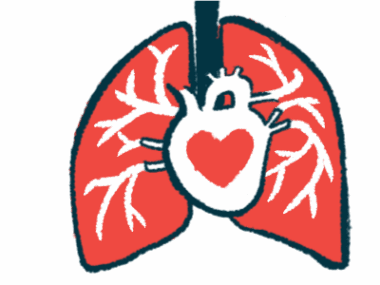Mosliciguat for PH-ILD granted orphan drug status in Japan
Designation provides incentives for developing treatments for rare disease
Written by |

Japan’s Ministry of Health, Labour and Welfare (MHLW) has granted orphan drug designation to mosliciguat, an investigational inhalation therapy that Pulmovant is developing to treat pulmonary hypertension associated with interstitial lung disease (PH-ILD).
The MHLW gives this designation to experimental medicines intended to treat conditions affecting fewer than 50,000 people in Japan. The goal of the designation is to provide extra incentives to companies investing in developing treatments for rare diseases. Among the incentives, therapies given orphan drug designation get a guarantee of up to 10 years of market exclusivity if they are ultimately approved.
“Obtaining orphan drug designation for mosliciguat in Japan validates the significant unmet need that exists for people living with PH-ILD, a progressive and life-threatening cardiopulmonary condition with poor prognosis and limited or no treatment options,” Drew Fromkin, CEO of Pulmovant, said in a company press release. “We appreciate the MHLW’s recognition of this challenge for PH-ILD patients and look forward to continued collaboration with Japanese regulators as we advance mosliciguat through the next stages of clinical development.”
Phase 2 trial of mosliciguat currently enrolling
PH-ILD refers to pulmonary hypertension — high blood pressure in the vessels that carry blood from the heart through the lungs — in people who have underlying disorders that cause scarring or fibrosis in the lungs. Mosliciguat is designed to reduce blood pressure in the lungs’ vessels by targeting soluble guanylate cyclase (sGC), an enzyme that helps to control the widening of blood vessels.
A proof-of-concept Phase 1b study (NCT03754660) tested mosliciguat in people with other forms of PH, namely pulmonary arterial hypertension or chronic thromboembolic pulmonary hypertension. It indicated that the therapy reduced pulmonary vascular resistance (PVR), which measures how hard it is for the heart to pump blood through the lungs.
Spurred by these early results, Pulmovant launched a Phase 2 clinical trial called PHocus (NCT06635850). The study aims to enroll 120 adults with PH-ILD, ages 18 to 80, who can walk at least 100 meters (about 330 feet) in six minutes. Participants are currently being recruited at 18 sites across the U.S.
For the first 24 weeks, or about six months, of the study, participants will be randomly assigned to receive mosliciguat or a placebo once daily. The main goal is to assess the effect of treatment on PVR after 16 weeks, or about four months. Participants who complete the placebo-controlled portion can continue into an extension phase wherein all will be treated with mosliciguat and monitored for long-term safety and efficacy outcomes.




